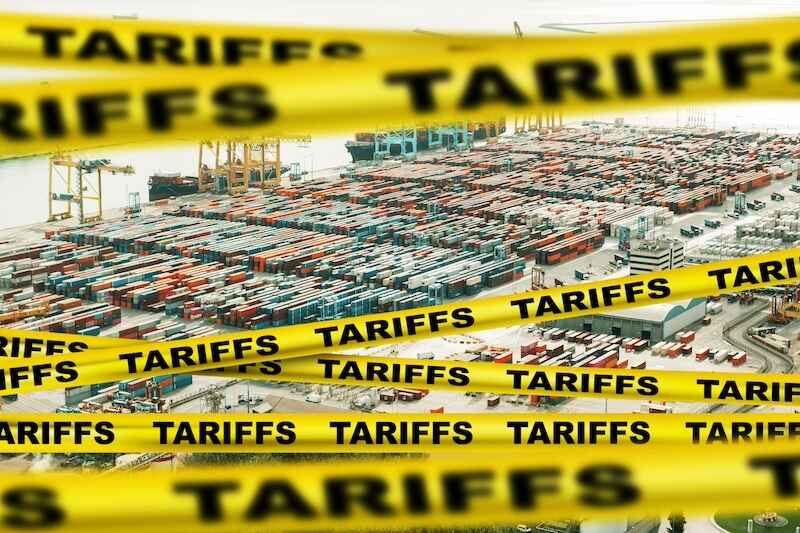Buybacks Aren’t Inherently Evil, But…
Shah Gilani|February 12, 2019
Last week, senators Chuck Schumer (D. NY) and Bernie Sanders of (D. VT) co-authored an opinion piece in the New York Times titled, “Limit Corporate Buybacks” with the subtitle “Corporate self-indulgence has become an enormous problem for workers and for the long-term strength of the economy.”
They’re right that buybacks should be limited, but wrong about their impact on workers and the economy.
So, today I’ll tell you what the senators got right, what they got wrong, and how buybacks should be treated.
But before we dive right in, let me share a quick tidbit on how you can get your share of a multi-billion cash pool…
Take Advantage of This Moneymaking Tactic
I’ll make this quick, because I want to get into why Chuck Schumer and Bernie Sanders are both right and wrong about buybacks, but this is extremely important:
In our recent study, Public Law 92-313 was re-discovered. Congress passed this back forty-some years ago, but today it could change your life.
Behind the bill is a path to get access to an $11.1 billion cash pool, and with a simple understanding of how a little-known investment behind these monthly payouts, you could secure a spot on the distribution list.
All you need is the right know-how – which is where our technical trading expert at Money Morning comes in.
People who have figured out how to earn a spot on the distribution list could have already started to lock in up to an extra $1,795 per month.
Click here to learn more.
How’s THAT Dutiful?
Let’s get into it.
In the opinion piece, the senators said, “From the mid-20th century until the 1970s, American corporations shared a belief that they had a duty not only to their shareholders but to their workers, their communities, and the country.”
The senators go back to the mid-20th century to make their case, that through the 1970s corporations were dutiful to shareholders, workers, and the economy.
That’s untrue.
Corporations have been fighting workers for more than a century. From the 1830s and 1840s textile workers strikes to the 1870s to 1970s railroad workers, steelworkers, farm workers, newspaper workers, autoworkers, aviation workers, hospital workers, and truckers strikes have marred the relationship between corporations and workers.
How’s that dutiful?
Corporations have hardly ever felt a duty to workers, other than to keep them working to continue to produce the goods and services management is trying to sell.
Bestowing the kinds of benefits the senators demand corporations lavish on their workers, their communities, and the economy is not a primary corporate goal of for-profit companies.
Their primary duty is to their shareholders. And like it or not, their business is making money for their owners, their shareholders. That’s what they’re structured to do.
[CRUCIAL] He spent over $5 million inventing this
The senators said, “Over the past several decades, corporate boardrooms have become obsessed with maximizing only shareholder earnings to the detriment of workers and the long-term strength of their companies, helping to create the worst level of income inequality in decades.”
Plenty of corporations certainly aided and abetted their earnings potential by supporting trade deals, like NAFTA, that “offshored” American jobs to where labor markets and worker protections were cheaper and friendlier, to countries like Mexico and China.
Our legislators voted for those trade deals.
Congress is to blame for aiding and abetting corporations offshoring jobs, for killing manufacturing in the U.S., for eviscerating the middle class by selling their job prospects, their futures, for campaign donations.
It’s easy to blame greedy corporations, the same way it’s easy to blame Warren Buffet for paying less than $2 million in tax last year when he’s worth more than $80 billion.
But what they do is legal. The laws in America are designed by corporations who want to make more money and by people of means who don’t want to pay a lot of tax.
You can’t blame them for using the law to their favor.
The senators say, “One way in which this pervasive corporate ethos manifests itself is the explosion of stock buybacks.”
I agree, but again, buybacks are legal. Companies are simply using what’s available to them to enhance shareholder returns and management compensation. That’s an indisputable fact.
What’s not actually factual is the senators saying, “So focused on shareholder value, companies, rather than investing in ways to make their businesses more resilient or their workers more productive, have been dedicating ever larger shares of their profits to dividends and corporate share repurchases.”
Most companies, not all for sure, engage in share buyback programs with excess profits or with excess cash flow – after reinvesting in plant and equipment and after paying dividends with capital they don’t have another immediate or even near-term need for.
Companies that can’t afford buyback programs and borrow to buy their shares back on the open market are a real problem.
In a way, they’re a good problem for some traders and investors. That’s because traders like me research those companies and bet against them, knowing they’re leveraging themselves up and risking not only future profitability of the company, but also the company itself. Right now, there are a lot of companies that are about to take huge hits if interest rates rise more, if the economy slows down, especially if it enters a recession, and if their stock prices fall, which many of them are already seeing.
But that’s the free market.
This is How to Reduce Inequality
Companies are free to fail, just as they’re free to use buybacks to enrich management if it’s legal.
A pair of senators, moreover Congress as a democratic institution, dictating by fiat what corporations should do with the money they earmark for buybacks and dividend payments is a socialist manifestation of the progressive liberal ethos and has no place in our economy.
What makes sense is changing tax rules to benefit workers, the economy, and shareholders.
The easiest way to do that would be to change the way retained earnings, cash, or borrowed money is taxed based on what a corporation is using it for.
Since the senators are so worried about workers and have done nothing in their combined almost 60 years in government to protect workers’ pensions or retirement accounts or aided their ability to accumulate wealth through stock ownership and receipt of dividends, that’s where they should start.
[URGENT] Massive discovery could be worth billions of dollars
Why not make any corporate retained earnings not taxable if it’s applied towards a company’s pension obligations? That would help workers.
Why not make dividends not taxable to non-manager workers who own company shares?
Why not make share contributions as bonus compensation to workers making less than six times minimum wage 100% tax deductible to the corporation and the recipient?
Why not make the tax on capital spent on buybacks something like 50%, while the tax on retained earnings to pay dividends zero?
Shareholders, and hopefully more workers becoming shareholders, benefit by dividend payments, which often make their way into the economy. That is, if they aren’t reinvested towards buying more shares.
Buybacks aren’t inherently evil, but they are problematic. They serve too few Americans.
The way to fix the problems with buybacks isn’t by dictating corporate policy as if we’re a socialist command economy.
By applying smart, widely beneficial, expansive, not confiscatory and punishing tax policies, America can redirect the buyback mania and greatly reduce inequality.
Sincerely,
![]()
Shah

Shah Gilani
Shah Gilani is the Chief Investment Strategist of Manward Press. Shah is a sought-after market commentator… a former hedge fund manager… and a veteran of the Chicago Board of Options Exchange. He ran the futures and options division at the largest retail bank in Britain… and called the implosion of U.S. financial markets (AND the mega bull run that followed). Now at the helm of Manward, Shah is focused tightly on one goal: To do his part to make subscribers wealthier, happier and more free.

